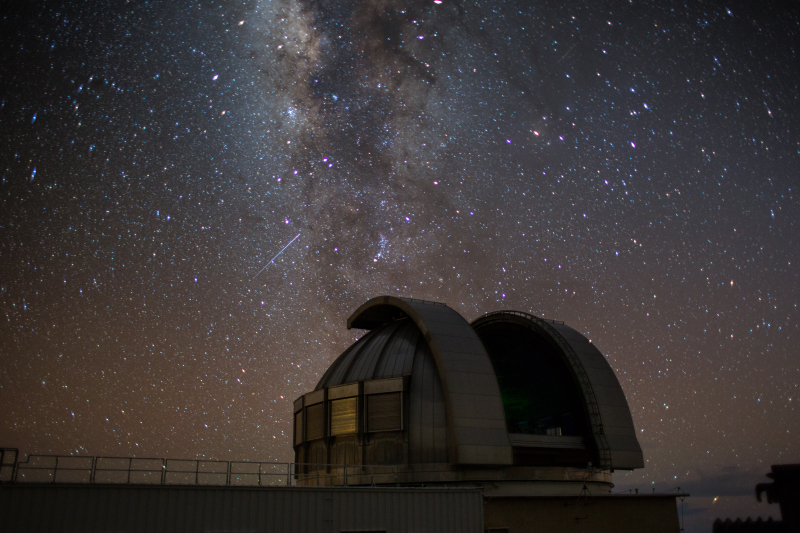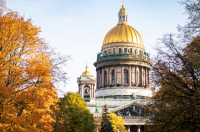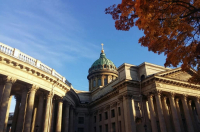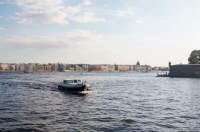St. Petersburg Planetarium & Planetarium No.1
Planetariums are the primary choice when it comes to learning about space. There are two major ones in St. Petersburg and they are equally deserving of your attention!
The first one – St. Petersburg Planetarium – is located near the ITMO University’s Kronverksky 49 campus. It was founded in 1959, just a couple of years after the launch of the first artificial satellite by the USSR. Since then, it’s been functioning as a place where both children and adults can learn more about all sorts of celestial objects. There are seven halls where you can learn not only about space and cosmonautics, but also physics, geography, and natural sciences.
Planetarium No. 1 is a more modern option, launched in 2017, but in these few years it has managed to become one of the most popular venues in St. Petersburg. Its very location – a massive former gas holder – is very impressive. Inside its massive hall, visitors can lounge in bean bags and enjoy high-quality films about space as they’re projected onto the huge (37 meters in diameter – the biggest in the world!) domed ceiling. Some of the programs are available in English upon request. Plus, here you can not only learn about space, but also attend modern art exhibitions, concerts, and lectures – you can find the list of upcoming events on their website.
Glushko Museum of Space Exploration and Rocket Technology
This museum is a part of a bigger complex – the Museum of the History of St. Petersburg, located in the Peter and Paul Fortress. Named after its founder Valentin Glushko, one of the most prominent Soviet rocket engineers, this museum is more about the technologies behind space exploration. Among the exhibited objects are many fascinating models of various devices related to this field.
Pulkovo Observatory
Built in the 19th century, the Pulkovo Observatory has been a major research center for nearly 200 yearsIt’s located a little outside of St. Petersburg, near the Pulkovo Airport. You can get there by taking a bus from the Moskovskaya metro station. One of the buildings of this complex – the main observatory itself – is even included on the UNESCO World Heritage list, so you might enjoy the trip there even without entering the observatory: visitors are allowed to walk in its park area for free.
However, to make the most of your trip and visit the local Astronomical Museum and the observatory with its massive telescopes, you need to sign up for a guided tour (available in English). There are several options for your visit: some allow you to look through the telescope yourself. You can find more detailed information on its website.
If you feel like doing some research on your own before visiting one of these places, try our articles about space exploration: for example, this one about asteroids, or this one on relevant discoveries. Happy Cosmonautics Day!




